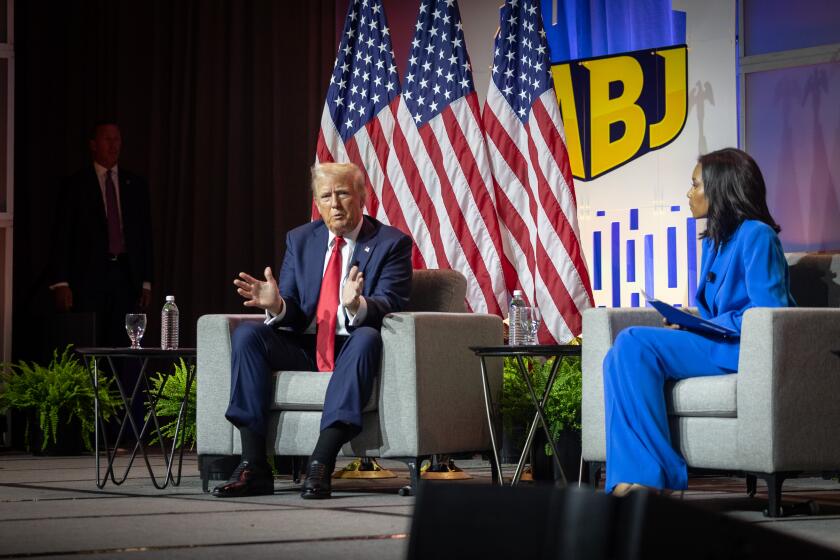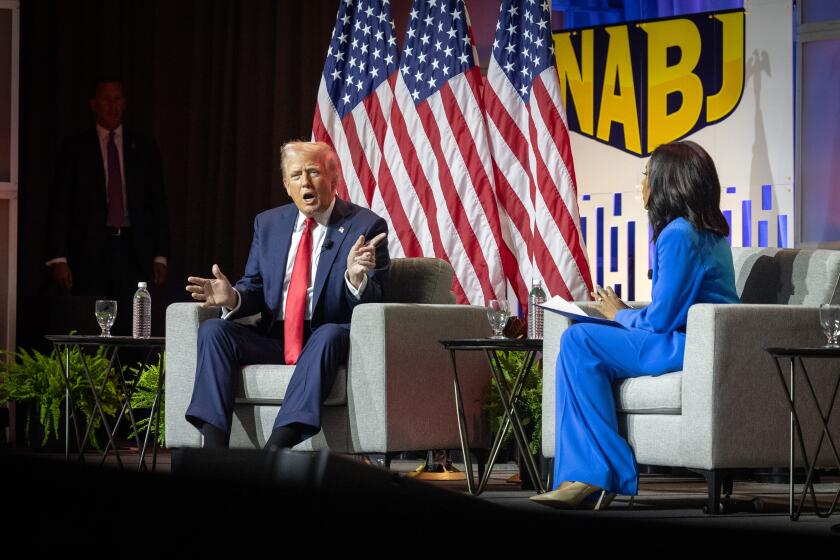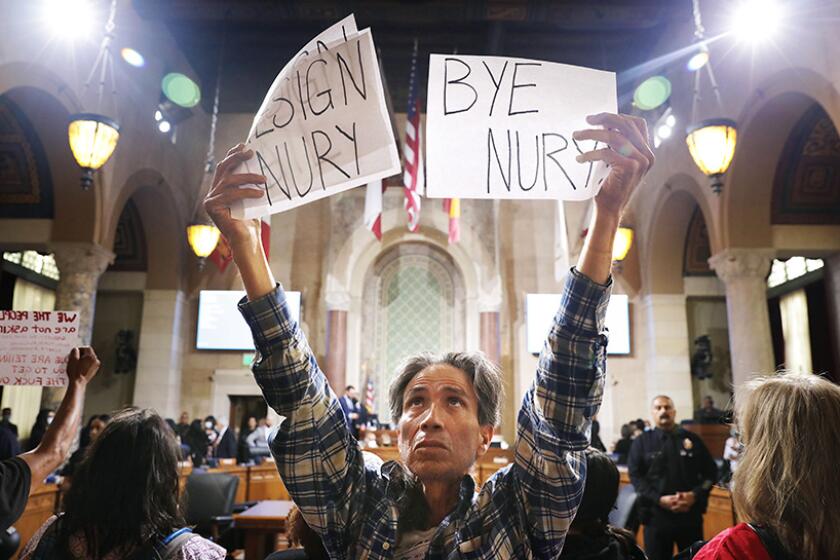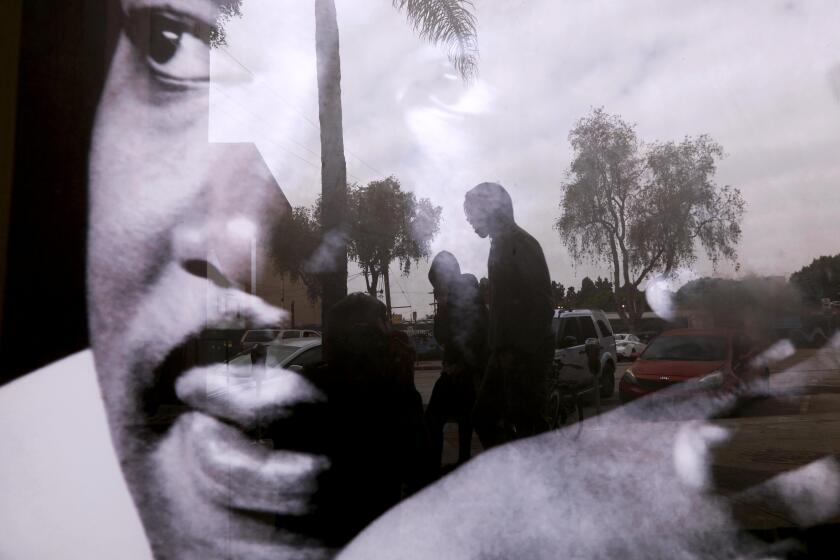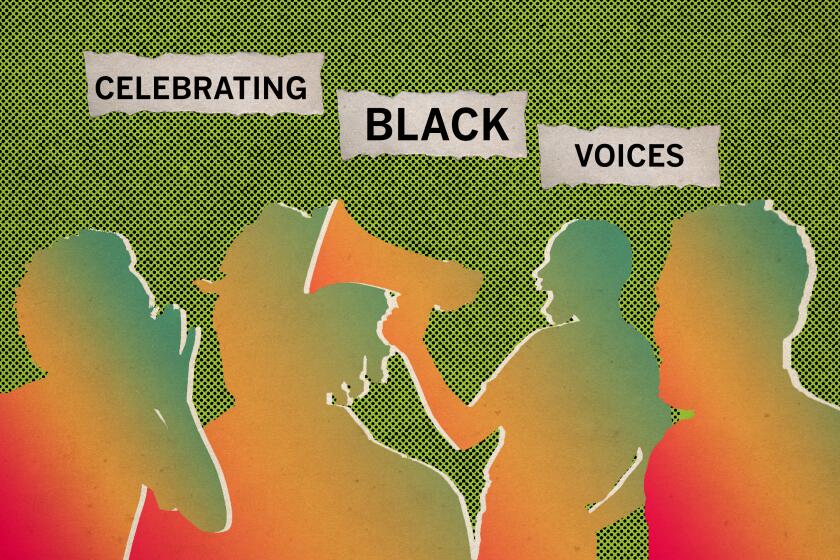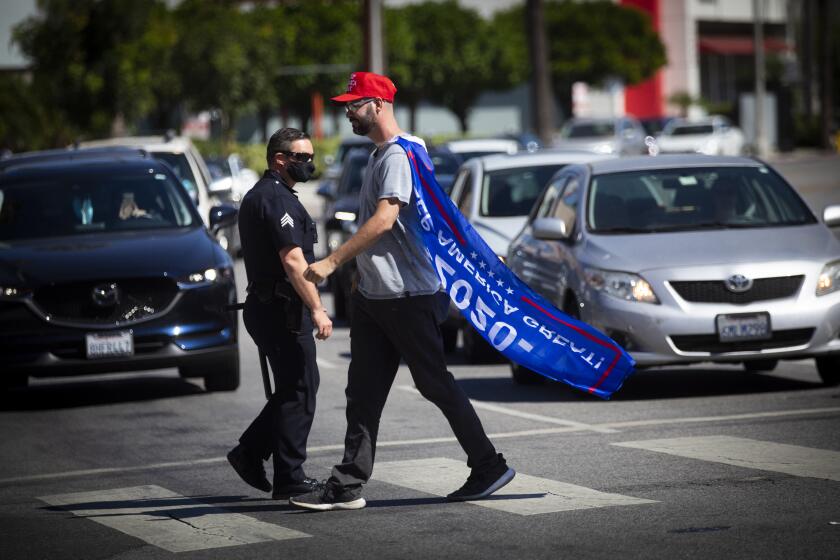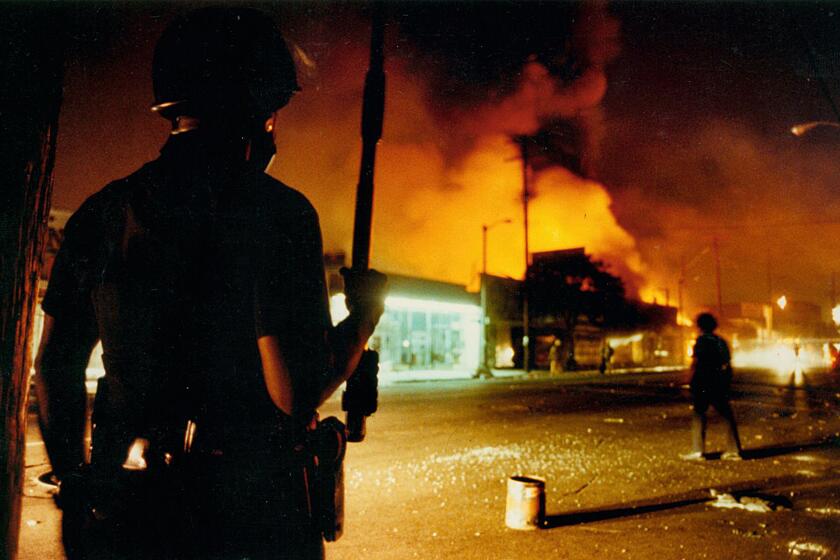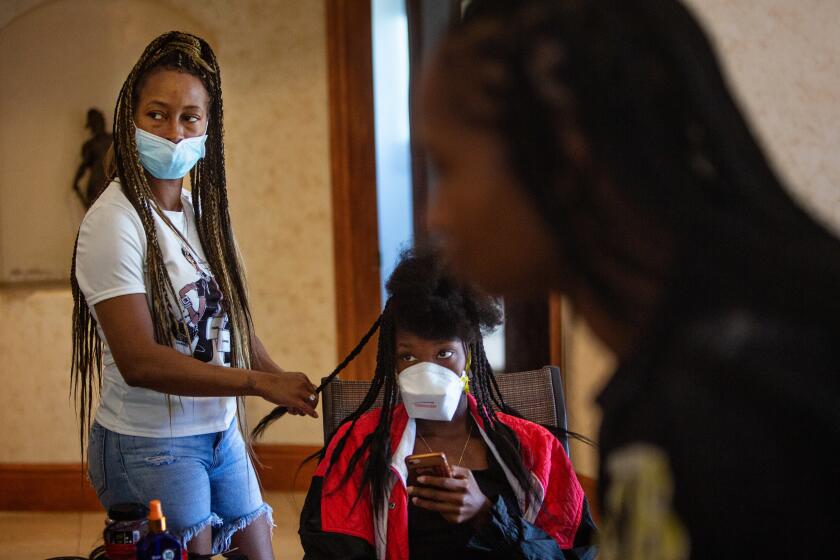As assistant managing editor for culture and talent, Angel Jennings oversees the Los Angeles Times fellowship and internship programs as well as works closely with HR and department heads to help manage a broad range of responsibilities, including tracking, recruiting, interviewing and selecting diverse candidates for job opportunities and advancing the company’s efforts to promote diversity, equity, inclusion and access. She also works across the newsroom on retention, training and career development efforts. Jennings previously worked as a reporter in Metro. She got her start in the Metpro program in 2011 and has since worked on assignments with many departments in the newsroom, including Metro, National, Calendar, Business and podcasts.
Latest From This Author
Former President Trump made baseless claims about Vice President Kamala Harris’ race while she enjoys a surge battleground states.
During a National Assn. of Black Journalists interview, Trump said of Kamala Harris, ‘I didn’t know she was Black until a number of years ago, when she happened to turn Black.’
Durante décadas, los líderes políticos negros y latinos de Los Ángeles formaron alianzas vitales. Pero esta alianza se enfrenta ahora a retos sin precedentes.
For decades, L.A. Black and Latino political leaders formed vital alliances. But these partnership now face unprecedented challenges.
In Black neighborhoods, residents feel the sting of betrayal over three council members’ racist conversation.
Join us Thursday, Feb. 25, for a live video event with L.A. Times journalists Angel Jennings, Tyrone Beason, Erika D. Smith, Makeda Easter and LZ Granderson. They’ll discuss how to honor Black History and Black storytellers.
Reports of gunfire at a pro-Trump caravan led to a police standoff at an apartment building in Woodland Hills, but SWAT officers found no one in the apartment.
Los organizadores de Black Lives Matter querían llevar la rabia por el caso de George Floyd y tantos otros a las élites de Los Ángeles, en sus propios barrios
Black Lives Matter organizers wanted to bring the rage over the George Floyd case and so many others to L.A.’s elites, in their own neighborhoods.
In black communities, where barbershops and salons are cultural institutions and gathering places, the lockdown has hit barbers and stylists hard.

